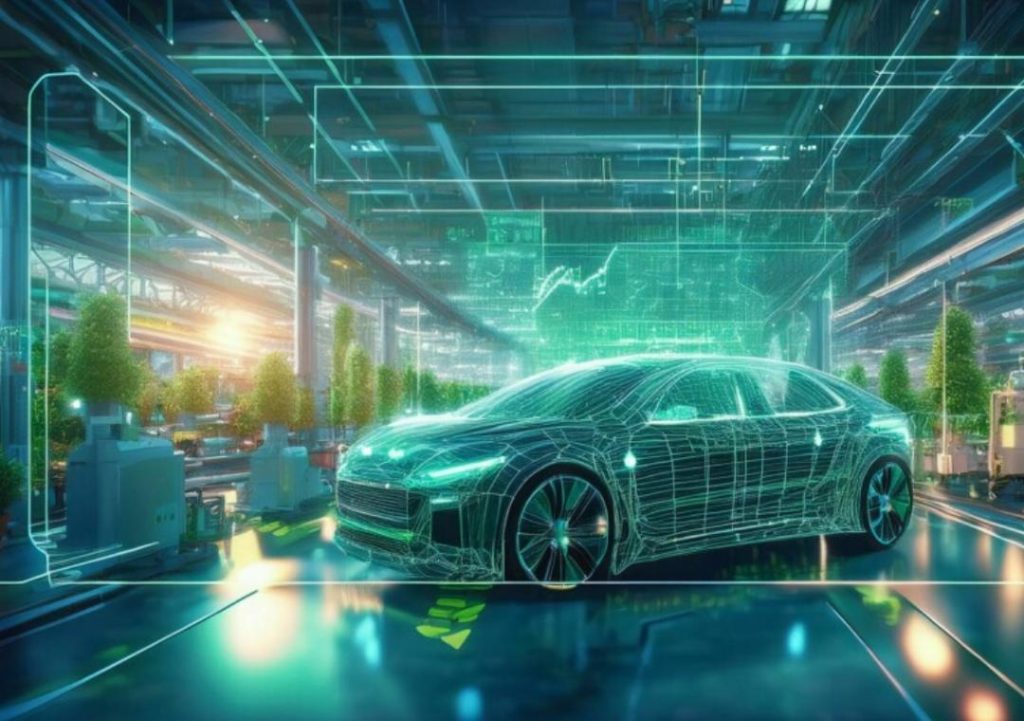
How AI Is Driving Sustainability in Automotive
The automotive industry has been undergoing a significant transformation in recent years, driven by the increasing demands for sustainability and environmental responsibility. As the world grapples with the challenges of climate change, automakers are turning to artificial intelligence (AI) to reduce their carbon footprint and promote eco-friendly practices. In this blog post, we’ll explore how AI is driving sustainability in the automotive industry, from optimizing routes to prolonging vehicle life.
Route Optimization: A Key to Reduced Emissions
One of the most significant ways AI is driving sustainability in automotive is through route optimization. By analyzing traffic patterns, road conditions, and other factors, AI-powered systems can optimize routes for vehicles to reduce fuel consumption and lower emissions. This technology is particularly useful for commercial fleets, such as delivery trucks and taxis, which can benefit from reduced fuel costs and lower environmental impact.
For example, companies like Google and HERE Technologies are using AI-powered routing solutions to help reduce emissions from commercial vehicles. HERE’s Route Optimization platform uses machine learning algorithms to analyze real-time traffic data and optimize routes for reduced fuel consumption and lower emissions.
Predictive Maintenance: Preventing Breakdowns and Reducing Waste
Another way AI is driving sustainability in automotive is through predictive maintenance. By analyzing data from sensors and other sources, AI-powered systems can predict when a vehicle is likely to break down, allowing maintenance teams to schedule repairs and minimize downtime. This approach not only reduces waste by preventing unnecessary repairs but also prolongs the life of vehicles, reducing the need for premature replacements.
For instance, companies like Siemens and GE Transportation are using AI-powered predictive maintenance solutions to reduce downtime for commercial vehicles. Siemens’ MindSphere platform uses machine learning algorithms to analyze data from sensors and other sources, predicting when a vehicle is likely to break down and alerting maintenance teams to schedule repairs.
Smarter EV Integration: Enabling a Sustainable Future
Electric vehicles (EVs) are increasingly becoming a key part of the automotive industry’s sustainability strategy. AI is playing a crucial role in enabling the widespread adoption of EVs by optimizing charging infrastructure, predicting energy demand, and improving the overall charging experience.
For example, companies like ChargePoint and EVgo are using AI-powered charging solutions to optimize charging infrastructure for EVs. ChargePoint’s charging network uses machine learning algorithms to predict energy demand and optimize charging times, ensuring that energy is used efficiently and sustainably.
Prolonging Vehicle Life: A Key to Reduced Waste
AI is also playing a crucial role in prolonging the life of vehicles, reducing waste, and promoting sustainability. By analyzing data from sensors and other sources, AI-powered systems can identify potential issues before they become major problems, allowing maintenance teams to schedule repairs and minimize downtime.
For instance, companies like Carma and Zubie are using AI-powered vehicle maintenance solutions to prolong the life of vehicles. Carma’s platform uses machine learning algorithms to analyze data from sensors and other sources, predicting when a vehicle is likely to break down and alerting maintenance teams to schedule repairs.
Demand Forecasting: Avoiding Overproduction and Managing Surplus
Finally, AI is being used by automakers to improve demand forecasting, avoiding overproduction and managing surplus better. By analyzing data from sensors, social media, and other sources, AI-powered systems can predict demand for vehicles and components, allowing manufacturers to adjust production accordingly.
For example, companies like Siemens and GE Transportation are using AI-powered demand forecasting solutions to improve production planning for commercial vehicles. Siemens’ MindSphere platform uses machine learning algorithms to analyze data from sensors and other sources, predicting demand for vehicles and components and alerting production teams to adjust production accordingly.
Conclusion
In conclusion, AI is playing a crucial role in driving sustainability in the automotive industry. From optimizing routes to prolonging vehicle life, AI-powered solutions are helping automakers reduce their carbon footprint and promote eco-friendly practices. By reducing waste, improving demand forecasting, and enabling smarter EV integration, AI is helping the automotive industry transition to a more sustainable future.
Source:
https://www.growthjockey.com/blogs/ai-in-automotive-industry
Note: The article is based on the information provided and is not intended to be a comprehensive review of the topic. The information is accurate to the best of the writer’s knowledge and should not be used for any commercial or academic purposes without proper citations and references.






